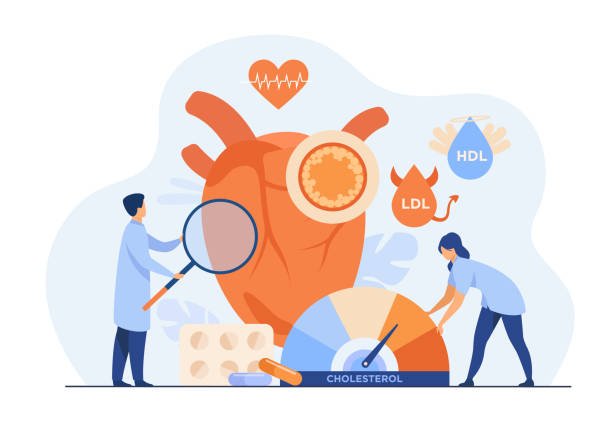
Considering Cholesterol? Eat Egg Yolk and Seafood in Moderation You Don’t Have to Worry High Cholesterol
When you think of cholesterol, what comes to your mind? Eggs, offal, or seafood like scallops, oysters, and oysters? No matter what kind of food comes to mind, we are always afraid of high cholesterol and dare not eat foods rich in high cholesterol. However, in fact, the cholesterol in the diet is not only not as scary as imagined, but also very important to the human body; and many High-cholesterol foods, such as eggs, full-fat dairy products or fish oil, are actually rich in nutrients. The following article will help you break the myths about food cholesterol.
The relationship between cholesterol and heart disease
In the past, cholesterol intake was thought to be one of the main causes of heart disease, but in fact there are many factors that cause heart disease, such as inflammation of the body, oxidative stress, high blood pressure (Hypertension) or smoking.
Although heart disease is inseparable from cholesterol, the real killer is the lipoprotein that transports cholesterol, and dietary cholesterol has little effect. In addition, some studies believe that the concentration of oxidized cholesterol (Oxysterol) in the blood may be one of the main causes of heart disease.
Dietary cholesterol ≠ Blood cholesterol
Although it seems reasonable to take supplements according to what you eat, in fact, the cholesterol absorbed in the diet is not completely related to the cholesterol in the blood, because the human body itself produces nearly 80% of the cholesterol, and less than 20% comes from the diet. ingest. Therefore, dietary cholesterol intake has little effect on blood cholesterol concentration.
However, some studies have pointed out that nearly 40% of people are more susceptible to changes in cholesterol concentration due to diet due to genetic factors. However, their risk of heart disease is not higher because after they consume high-cholesterol foods, the cholesterol levels in their bodies are reduced. The increased low-density lipoprotein (LDL, also known as bad cholesterol) particles are larger, rather than the small-particle low-density lipoprotein (sdLDL) that is most harmful to the human body.
In addition, when eating high-cholesterol foods, the concentration of high-density lipoproteins (HDL, also known as good cholesterol) will also increase. Therefore, overall, whether it is ordinary people or more sensitive groups, the amount of dietary Cholesterol has little effect on the heart.

New health guidelines lift cholesterol cap
It is worth noting that the old version of the U.S. Dietary Guidelines recommended that each person’s daily cholesterol intake should be less than 300 milligrams, but the newly released “2015-2020 Dietary Guidelines for Americans” has canceled the upper limit of daily cholesterol intake and overturned it. The old concept was that eggs and seafood intake should be controlled.
However, everyone’s nutrient absorption situation is different. Therefore, if people find abnormalities in their body or index after consuming high-cholesterol foods, it is still recommended to limit their intake. In particular, some people may be born with a tendency to have elevated cholesterol levels due to genetics, or may already have excessive cholesterol problems. Special attention should be paid to avoid eating too much high-cholesterol and high-saturated fat foods.
Egg yolk ban lifted, diabetics should eat less
As for the past belief that egg yolks are high in cholesterol and should be avoided in excess, many studies have pointed out that consuming egg yolks does not increase the risk of heart disease, and can even help improve the ratio of good to bad lipoproteins and reduce the risk of disease. risk.
Some scholars have compared the effects of eating protein and eating whole eggs on cholesterol. Research results show that people who eat three whole eggs a day have a greater increase in HDL and a greater decrease in bad cholesterol concentration. However, diabetics (Diabetes) who are accustomed to a Western-style diet should be particularly careful about their egg intake, because some studies have pointed out that eating eggs in diabetics may increase the risk of heart disease.
In any case, the relationship between eggs, cholesterol and cardiovascular disease is still under study, so it is recommended to eat them in moderation and confirm and track your cholesterol index and blood lipid status through regular cholesterol testing (blood lipid testing).
Eat a balanced diet and avoid high cholesterol
Excessive blood cholesterol is one of the main causes of heart disease. However, for most people, dietary cholesterol intake has little effect on blood cholesterol concentration. There are currently no studies confirming that cholesterol intake increases the risk of heart disease. Therefore, people who love to eat no longer need to be careful when eating seafood or various delicacies. They only need to maintain a moderate and balanced intake of food, and regularly track blood cholesterol concentration, and then they can taste all kinds of delicacies with confidence.













